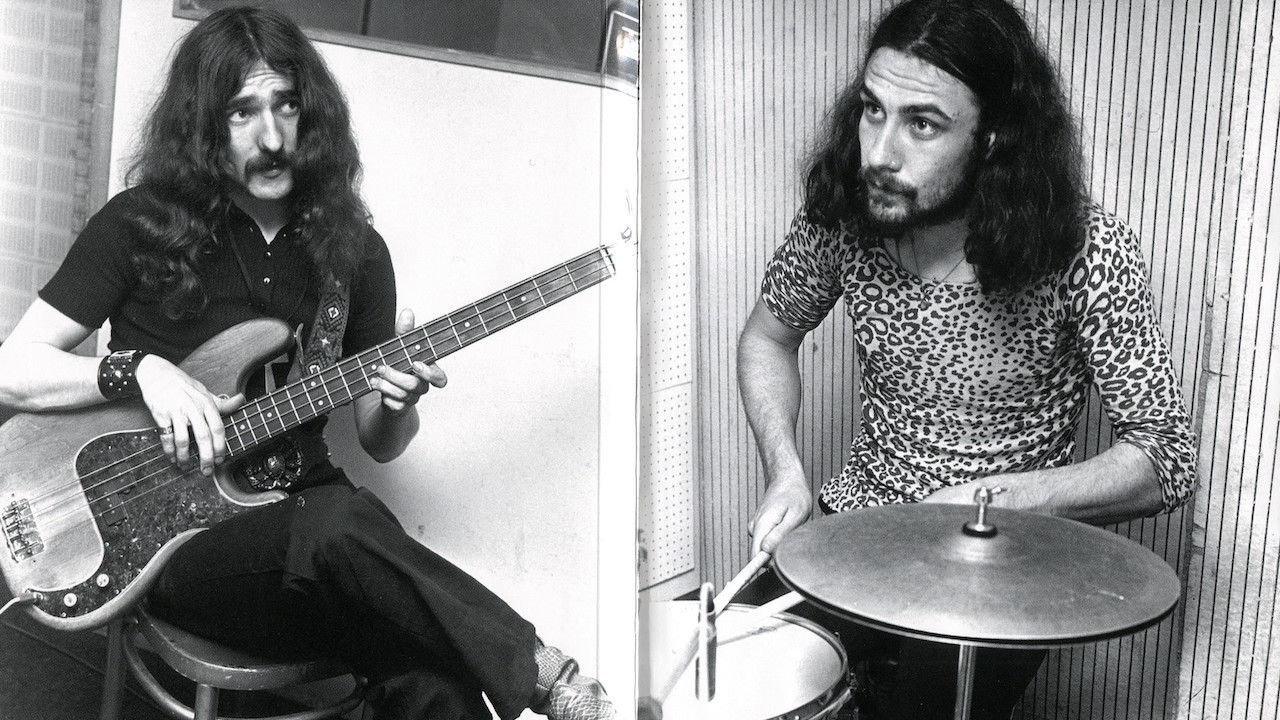Geezer Butler: “Originally it was titled ‘Nib’, which was Bill’s beard and looked like a pen nib because it was pointy”
Geezer Butler explains the obscure title behind one of Black Sabbath’s most recognisable riffs

Terence ‘Geezer’ Butler, born in 1949, has done it all when it comes to the bass guitar. A founder member of the first ever heavy metal band, Black Sabbath, he formed a rock-solid foundation with guitarist Tony Iommi and a swung interplay with drummer Bill Ward that has influenced countless acts ever since.
As Sabbath’s primary lyricist, Butler’s personal list of interests, which included Satanism, the Occult and associated states of ill-being, provided much of the group's lyrical inspiration, with fan favourite N.I.B continuing the same vein that unified much of the group’s self-titled debut album in 1970.
The unusual song title was long rumoured to be an acronym for Nativity in Black, a reference to the birth of the antichrist. The rumours turned out to be false, however, as Geezer later explained: “When I wrote N.I.B., I couldn’t think of a title for the song, so I just called it Nib, after Bill’s beard, which looked like a pen nib because it was pointy.” Clearly Geezer couldn’t have imagined just how widely discussed this obscure title would become.
Taking their name from the Hammer horror film, Black Sabbath began by writing songs around single guitar and bass riffs. “I think the first song we wrote together was Wicked World,” says Butler. “Ozzy came up with those lyrics. Black Sabbath was the second song. One night – I don’t know if it was drugs or what – I woke up and saw this bloody shape at the bottom of the bed, staring at me. I was into the occult at the time and it totally freaked me out. I told Ozzy about it, and he used it for the lyrics. Then he just didn’t want to write any more.”
The undisputed ‘King of the heavy metal bass riff,’ Butler maintains that his basslines were always inspired by guitarist Tony Iommi. “Practically always, I’m following Tony’s guitar riffs, unless it’s something that I’ve written, like N.I.B or Behind the Wall of Sleep. You had to be there to realise how much of a team effort it was. Tony would come up with a riff, say, and then we'd maybe need one note to take it into the next part of the song and Bill might hum something, just one note, and so on."
Behind The Wall Of Sleep is an expert exercise in allowing a bass part to breathe, with the holes in Iommi’s simple, catchy figure punctuated only by a slinky drum pattern. As the drums fade out, a bass solo leads into N.I.B, aided by a wah pedal. "I used Tony’s wah pedal on the first album, and I used an Tycobrahe wah pedal live. They went out of business, but there’s a firm in Chicago that’s making reproductions. Now, I’ve started using the Dunlop wah, and I really like it."
Bass adventures of the more unnerving persuasion will no doubt be plentiful in Geezer Butler’s forthcoming autobiography, Into The Void - From Birth to Black Sabbath – and Beyond. The Black Sabbath bassist has often talked of the many exploits he and his band members committed while “over-served at the bar”, one memorable example being the time he headbutted a statue – and suffered the consequences – after having mistaken it for a real person.
Geezer Butler’s autobiography, Into The Void - From Birth to Black Sabbath – and Beyond is available to pre-order on Amazon.
Get The Pick Newsletter
All the latest guitar news, interviews, lessons, reviews, deals and more, direct to your inbox!

Nick Wells was the Editor of Bass Guitar magazine from 2009 to 2011, before making strides into the world of Artist Relations with Sheldon Dingwall and Dingwall Guitars. He's also the producer of bass-centric documentaries, Walking the Changes and Beneath the Bassline, as well as Production Manager and Artist Liaison for ScottsBassLessons. In his free time, you'll find him jumping around his bedroom to Kool & The Gang while hammering the life out of his P-Bass.
“I asked him to get me four bass strings because I only had a $29 guitar from Sears”: Bootsy Collins is one of the all-time bass greats, but he started out on guitar. Here’s the sole reason why he switched
“I got that bass for $50 off this coke dealer. I don’t know what Jaco did to it, but he totally messed up the insides!” How Cro-Mags’ Harley Flanagan went from buying a Jaco Pastorius bass on the street to fronting one of hardcore’s most influential bands

![A black-and-white action shot of Sergeant Thunderhoof perform live: [from left] Mark Sayer, Dan Flitcroft, Jim Camp and Josh Gallop](https://cdn.mos.cms.futurecdn.net/am3UhJbsxAE239XRRZ8zC8.jpg)








